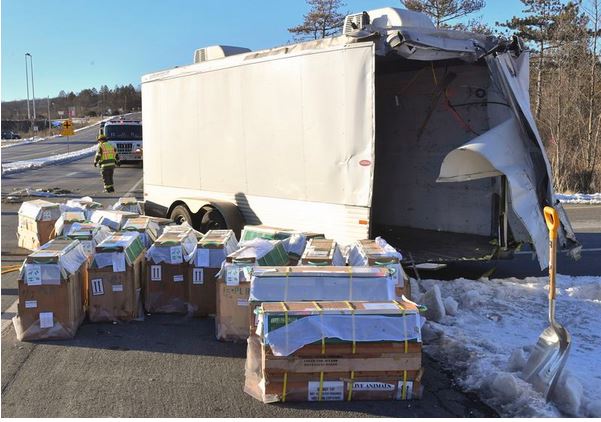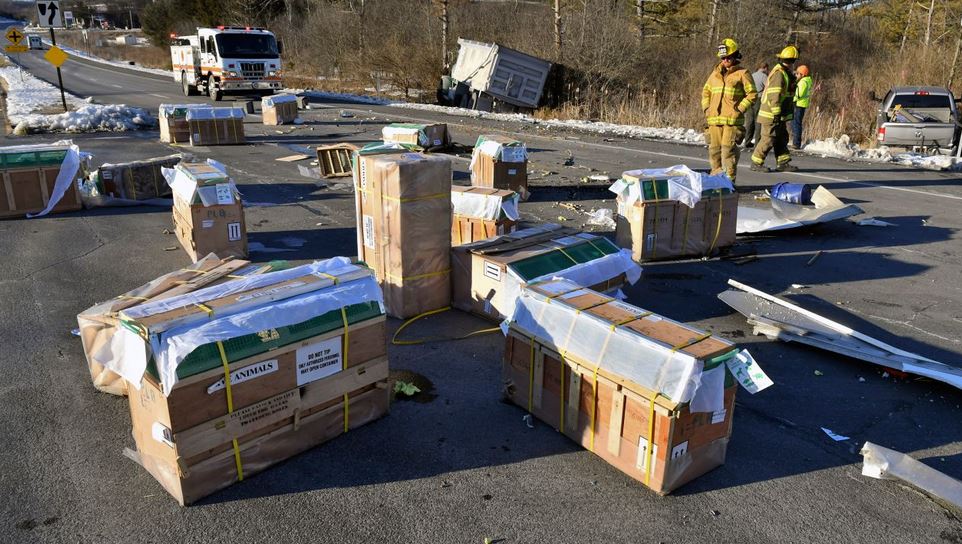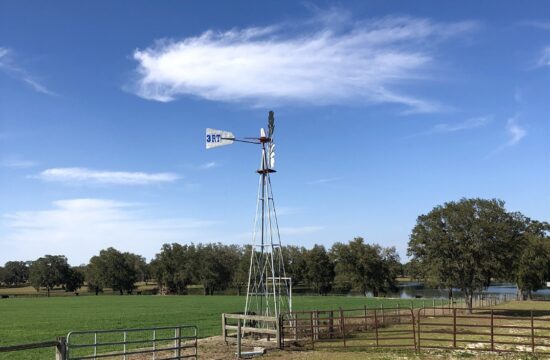By Terry Witt – Spotlight Senior Reporter
A senior official for People for the Ethical Treatment of Animals (PETA) wrote to Gov. Ron DeSantis Monday advising him of the grave health risks posed to human beings if a China-owned company opens a sprawling monkey facility in Gulf Hammock.
JOINN Biologics bought 1,400 acres of land in Gulf Hammock for a monkey quarantine facility. The company is currently the largest nonclinical contract laboratory in China. It conducts painful and deadly experiments on animals in China and the United States, according to the letter from Kathy Guillermo, senior vice president for the Laboratory Investigations Department of PETA.
“I was relieved to see that you’re already working on legislation and executive action that may help prevent this dangerous monkey facility from invading your community, and I hope you’ll stay the course so that JOINN doesn’t find a way to sneak into Florida. Please contact us if you need further details or other support. We employ a primate scientist with expertise in zoonotic diseases. Thank you for your consideration,” Guillermo wrote.
Levy County Commission Chairman Rock Meeks said Tuesday that county staff has yet to be contacted by JOINN about the 1,400 acres the company purchased for $5.5 million in Gulf Hammock for a monkey facility. The land purchased by the company isn’t zoned for a monkey quarantine facility to warehouse and breed exotic animals. The company would be required to apply for county permits.
Guillermo said PETA has 9 million members and supporters globally and 400,000 in Florida. The letter to DeSantis was compiled by PETA scientists. The organization shared the information with the governor in case it might be useful in his efforts to prevent foreign-owned, experimentation-related animal facilities from setting up shop in Florida.
“I understand that you’re aware that this Chinese-owned company’s intention is to develop a sprawling monkey facility that would receive newly imported monkeys as well as warehouse and potentially breed them for sale and use in the animal experimentation industry. The proposed facility would be within 20 miles of the U.S. Coast Guard’s Yankeetown Station, which may pose a significant risk to your state,” Guillermo wrote.
She went on to say that the U.S. Centers for Disease Control and Prevention has warned that imported monkeys pose a significant risk to public health. Bacteria and viruses the monkeys are exposed to in Asia can spread to humans and animals here.
“Monkeys involved in the wildlife trade for experimentation are known to carry and transmit a slew of nasty pathogens and diseases, including herpes B virus, tuberculosis, antimicrobial-resistant microbes, Ebola-like viruses, simian hemorrhagic fever virus, shigellosis, salmonella, campylobacter, malaria, dengue, and leprosy,” she said. “Although commercial monkey importers are required to screen for deadly pathogens that could spill over to humans, these pathogens are often missed, not all can be detected, and some don’t show up until months or years later. In addition, new, unidentified viruses that have the potential to cause pandemics are at risk. Researchers interested in the inherent zoonotic disease risks associated with the international animal trade have determined that trade in two primate species – long-tailed macaque monkeys, and rhesus macaque monkeys – have the greatest potential for the transmission of zoonotic disease. This is of particular concern, as it’s almost certain JOINN would be importing one or both of these species of monkeys,” Guillermo said.
The U.S. government knows the monkey pipeline system is dangerous but has been largely ineffective in enforcing the laws meant to protect residents. A representative of the CDC, which has banned the importation of primates for private ownership since the 1970s, testified before a congressional subcommittee that primates imported into the United States from foreign countries “often have an uncertain health history and may potentially carry diseases infectious to humans,” she said.
“JOINN is proposing to warehouse thousands of imported monkeys on agricultural and environmentally sensitive land in (Gulf Hammock) Florida. They will generate an enormous amount of biological waste. Monkey urine, feces, saliva, blood, and other bodily fluids will be introduced into the environment, along with any infectious agents present in those bodily fluids. The waste generated by this facility will attract insects, birds, and other wildlife, who will be drawn to the smell of food and the presence of monkeys, and Florida has numerous insects capable of increasing the transmission of parasites, viruses, and bacteria. Monkey facilities in Henry County have reported the presence of pathogens, including malaria and highly pathogenic E. coli, in their colonies,” she said.
She added that monkeys being transported in and out of quarantine facilities pose another dangerous risk — they may escape into the surrounding area. Earlier this year, a transport pickup truck on the way to a quarantine facility hauling a trailer with 100 long-tailed macaques – that had been flown from Mauritius to John F. Kennedy Airport in New York – collided with another vehicle outside Danville, Pennsylvania. Dozens of wooden crates holding the monkeys were propelled out of the trailer and onto a highway. Several monkeys escaped, and authorities confirmed three were shot dead. Some people who stopped by to survey the scene of the accident had direct contact with the newly imported monkeys, and at least one person required preventative treatment after being exposed to macaque bodily fluids.
“Primates have escaped from even the most “prestigious” monkey laboratories. In 2018, four baboons broke out of Texas Biomedical Research Institute and were seen by passersby on the highway before they were recaptured. Monkeys have also escaped from Tulane University, Oregon Health and Science University, Emory University, and Wake Forest University. Since such escapes occur at facilities with supposedly the most secure level of laboratories, it’s reasonable to say that a money escape from JOINN is not a question of if but when,” she said.
Guillermo also addressed the cruelty aspect of monkey importation from foreign countries. She said the number of long-tailed macaques in Southeast Asia has plummeted and was recently up-listed as endangered by the International Union for Conservation of Nature.
“Greedy laboratories and the companies that prop them up, including JOINN, were cited as a primary threat to these monkeys. Monkeys shipped to facilities such as the one JOINN is attempting to establish (in Gulf Hammock) were torn away from their homes in nature or else confined on squalid breeding farms in Africa and Asia. When these monkeys are shipped to the U.S., they’re separated from their families, locked inside small wooden crates, and crammed into dark, terrifying airplane cargo holds for as long as 30 hours. Eventually, if they pass the quarantine at facilities like the one JOINN is proposing, they’re trucked to laboratories that will poison them, cut them up, and kill them,” she said.


———————————–
Enterprise Reporting by Terry Witt October 5, 2022; Posted October 5, 2022













